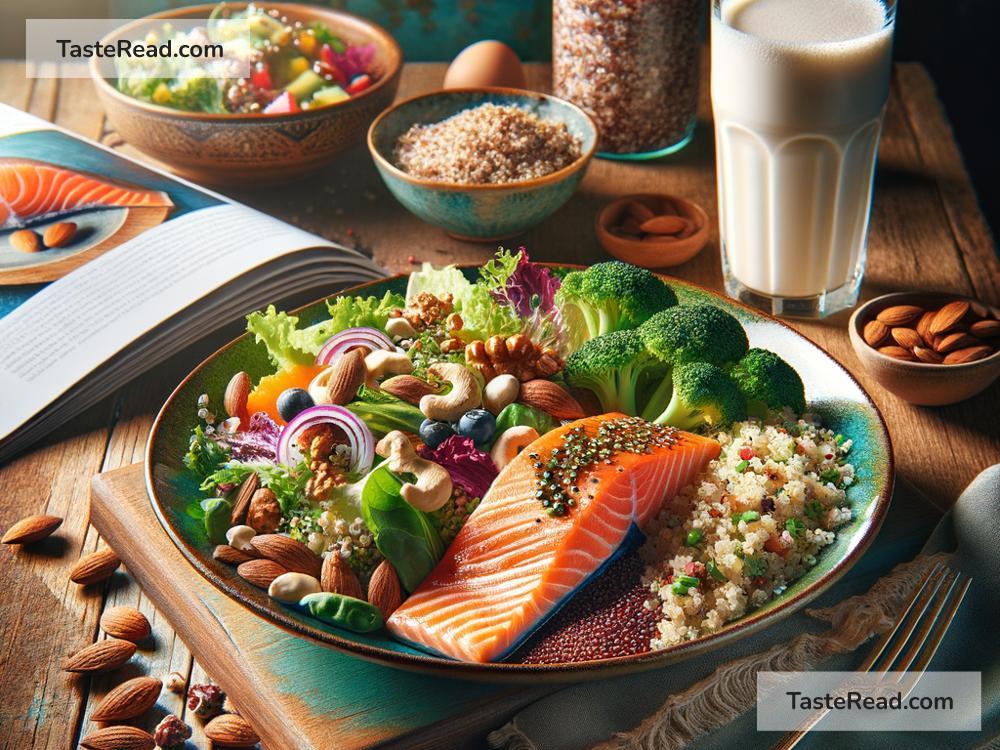The Benefits of a Balanced Diet for Bone Density: Supporting Skeletal Health
Our bones support us, protect our organs, and enable us to move around. Yet, many of us don’t give them much thought until something goes wrong, like a fracture or aches due to weak bones. One important way to keep our bones strong and healthy throughout life is by eating a balanced diet. The food we eat provides essential nutrients that play a major role in maintaining bone density and overall skeletal health. In this article, we’ll explore how a proper diet can contribute to stronger bones and prevent problems like osteoporosis.
What Is Bone Density and Why Is It Important?
Bone density refers to the amount of mineral content in our bones, primarily calcium and phosphorus. These minerals create a solid structure that keeps bones strong and durable. When our bone density is poor, bones can become fragile and are at greater risk of breaking, especially as we age or if we develop certain medical conditions.
Maintaining good bone density is vital for leading a healthy life. Strong bones support your body, and healthy skeletal structure prevents injuries and chronic conditions like osteoporosis, a disease that causes bones to become weak and brittle.
How Can a Balanced Diet Support Bone Density?
A balanced diet consists of foods that provide all the nutrients your body needs, including vitamins, minerals, proteins, carbohydrates, and fats. When it comes to bone density, certain vitamins and minerals are especially important. Here’s how they help:
1. Calcium—The Building Block of Bones
Calcium is the most critical nutrient for bone health. It makes up a large part of your bones and gives them their strength. If your body lacks calcium, it will start “borrowing” it from your bones, which can weaken them over time. Foods rich in calcium include:
– Dairy products such as milk, cheese, and yogurt
– Leafy green vegetables like kale and spinach
– Fortified foods like cereal and orange juice
– Almonds and tofu
2. Vitamin D—Calcium’s Best Friend
Vitamin D helps your body absorb calcium from the food you eat. Without enough Vitamin D, even a calcium-rich diet won’t be as effective in keeping your bones strong. Sunlight is a natural source of Vitamin D, but you can also get it from foods including:
– Fatty fish like salmon and mackerel
– Egg yolks
– Fortified milk and cereals
3. Protein—The Foundation of Structure
Protein is another essential nutrient for bone health. It helps build the collagen framework within your bones that the minerals stick to. Without enough protein, your bones may become brittle. Protein-rich foods include:
– Lean meats, poultry, and fish
– Beans and lentils
– Nuts and seeds
– Dairy products
4. Magnesium and Phosphorus—Strengthening the Bone Matrix
These minerals work alongside calcium to ensure bones remain sturdy and dense. Magnesium is found in nuts, seeds, whole grains, and leafy greens, while phosphorus is abundant in dairy products, meat, and eggs.
5. Vitamin K—Keeping Bones Intact
Vitamin K is essential for bone metabolism. It helps regulate calcium and ensures it goes to your bones rather than getting deposited in other areas of the body. Vitamin K can be found in foods like broccoli, spinach, and Brussels sprouts.
The Role of Lifestyle in Bone Health
While a balanced diet is critical for bone density, healthy lifestyle choices also play a big role. Here are a few tips to further support your skeletal health:
– Stay Active: Weight-bearing exercises like walking, jogging, and dancing can stimulate bone growth and maintain bone strength.
– Limit Alcohol: Drinking too much alcohol can interfere with calcium absorption and harm bone health.
– Avoid Smoking: Smoking has been linked to lower bone density and an increased risk of fractures.
Preventing Osteoporosis with a Balanced Diet
Osteoporosis is a condition that reduces bone density and increases the risk of bone fractures. It’s most common in older adults, but prevention starts early in life. By eating a balanced diet rich in calcium, Vitamin D, and other essential nutrients, you can reduce your risk of developing osteoporosis later in life. Pairing a good diet with physical activity ensures your bones remain strong and healthy.
Simple Tips for Bone-Friendly Eating
Making your diet bone-healthy doesn’t have to be complicated. Here are some simple ways to get started:
– Add milk or almond milk to your breakfast cereal.
– Snack on yogurt with fruit instead of chips or candy.
– Include leafy greens like spinach or kale in your salads.
– Swap soda for fortified orange juice or smoothies.
– Grill fatty fish like salmon for dinner.
Conclusion
Your bones are the foundation of your body, and keeping them strong is essential for living an active, healthy life. A balanced diet plays a key role in supporting bone density and preventing issues like osteoporosis. By including calcium-rich foods, getting enough Vitamin D, and consuming other vital nutrients, you can build a diet that supports lifelong bone health. Combine good eating habits with regular exercise and smart lifestyle choices, and your bones will thank you for years to come. It’s never too early—or too late—to start taking care of your skeletal health!


